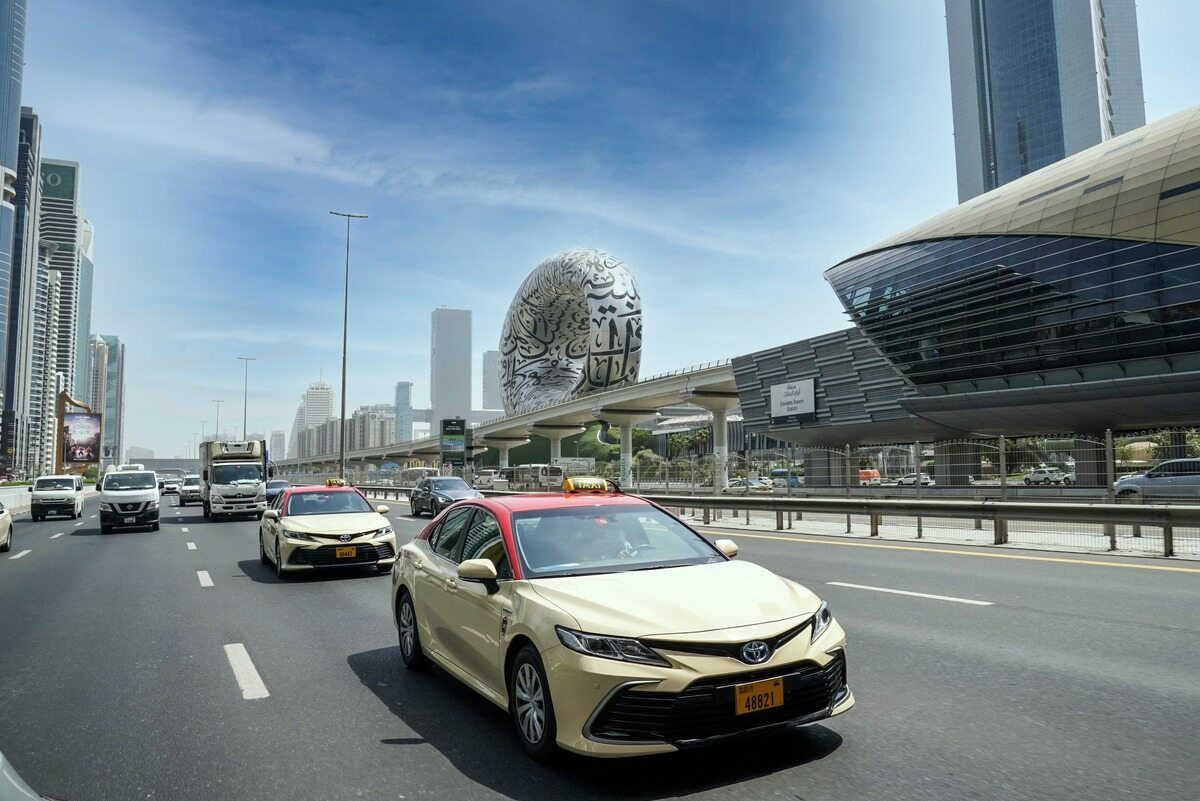The Roads and Transport Authority (RTA) subsidiary, Dubai Taxi Corporation (DTC), has unveiled its digital transformation strategic plan for the years 2022-2025.
The primary objective of this strategy is to achieve a range of strategic goals, emphasizing digital mobility, operational excellence, financial sustainability, customer satisfaction, and shaping the future.
Nine pivotal drivers
The strategy is constructed upon nine pivotal drivers, which include artificial intelligence, smart revenue systems, the Internet of Things (IoT), smart city initiatives, big data utilization, governance, upgraded security systems, process automation, paperless initiatives, future transformation, and smart services.
Read more: How Dubai’s transport authority plans to achieve zero emissions by 2050
DTC’s digital transformation strategy includes nine key drivers and 45 initiatives, including artificial intelligence. These initiatives include implementing an automated AI response system (chatbot) to address customer inquiries. Additionally, there is a plan to integrate voice virtual assistance at the call center to cater to customer requests and inquiries. Another initiative involves establishing a Taxi Demand Prediction system to optimize vehicle distribution using inputted data. Furthermore, DTC aims to introduce a Driver Face Recognition System to ensure driver identity verification and enforce security measures to prevent unauthorized vehicle usage.
The digital transformation strategy of DTC includes an additional initiative within the AI driver. This initiative focuses on developing a Customer Voice Recognition System. The purpose of this system is to authenticate customer identities In addition, Augmented Reality technology will be employed to enhance the customer experience and promote DTC’s services. The strategy includes installing onboard sensors. These sensors will be integrated with internal systems. Their purpose is to proactively receive notifications before malfunctions occur. Additionally, there are plans to explore establishing an integrated system. The system aims to register companies providing foreign workers on the supply platform. Lastly, efforts to enhance communication with companies will be intensified to improve DTC’s performance in attracting and appointing drivers.
Smart revenues and the IoT
The smart revenue initiatives in DTC’s digital transformation strategy encompass various aspects. These include the development of points of interest on the DTC App, providing business highlights. Additionally, there is a plan to implement a school bus trip tracking system, allowing parents to easily track their children’s trips. The strategy also aims to simplify and automate administrative procedures to enhance efficiency. Furthermore, it includes the ability for customers to make payments through the portal, ensuring a seamless and convenient experience. The IoT focuses on developing a system for automating procedures and processes using artificial intelligence.
Smart city and big data
The smart city driver in DTC’s digital transformation strategy focuses on integrating e-services with service sites. These services will be made available to external customers. The big data component involves the implementation of a smart rating scale in the DTC App, enabling clients to rate drivers based on their performance. Additionally, plans are in place to restructure data in DTC’s data centers. This restructuring will facilitate integration and analysis. The goal is to support decision-making and future forecasting.
Furthermore, the strategy aims to consolidate all services onto a single platform, enhancing customer accessibility to DTC’s offerings. Additionally, a system will be implemented to securely connect DTC’s external and internal systems (Integration layer – API connector), streamlining the integration of new systems with existing ones.
For more tech-related news, click here.








